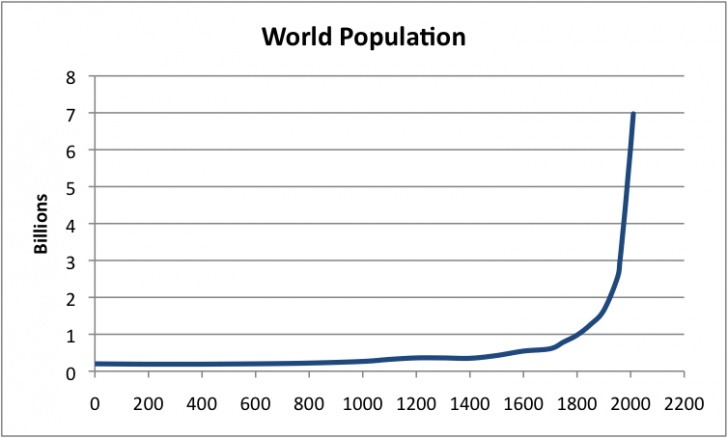The world is growing and faster than ever. Scientist predict we will cross 9B people this century. And while there are arguments about when that growth will stop and how quickly, one thing is clear: we are going to run out of food soon.
Recent research proposes that in order to accommodate such a large population, we are going to have to change our diet. Specifically, move away from meat and consume mostly (if not exclusively) fruit and vegetable.
Meat consumption has dire effects on the environment. It is expensive to grow, raises moral concerns, but primarily it is extremely ineffective. An average cow will consume 30 times more calories in its lifetime than it will provide. The number is much smaller (about 5 times) for poultry. And of course, the most effective way is to consume vegetable based calories.
The worldwide trend is clear: as countries get wealthier, their meat consumption increases. Together with the fact that the world’s population is larger than ever and growing, we are heading towards an environmental crisis and likely famine.
What can we do? Other than switching to a vegetarian diet, we also need to start thinking about optimizing our farming. This is where robotics, computer vision and machine learning can help. For example, fully automated farms that are controlled by algorithms can be extremely effective and minimize waste, space and therefore cost and environmental footprint.
